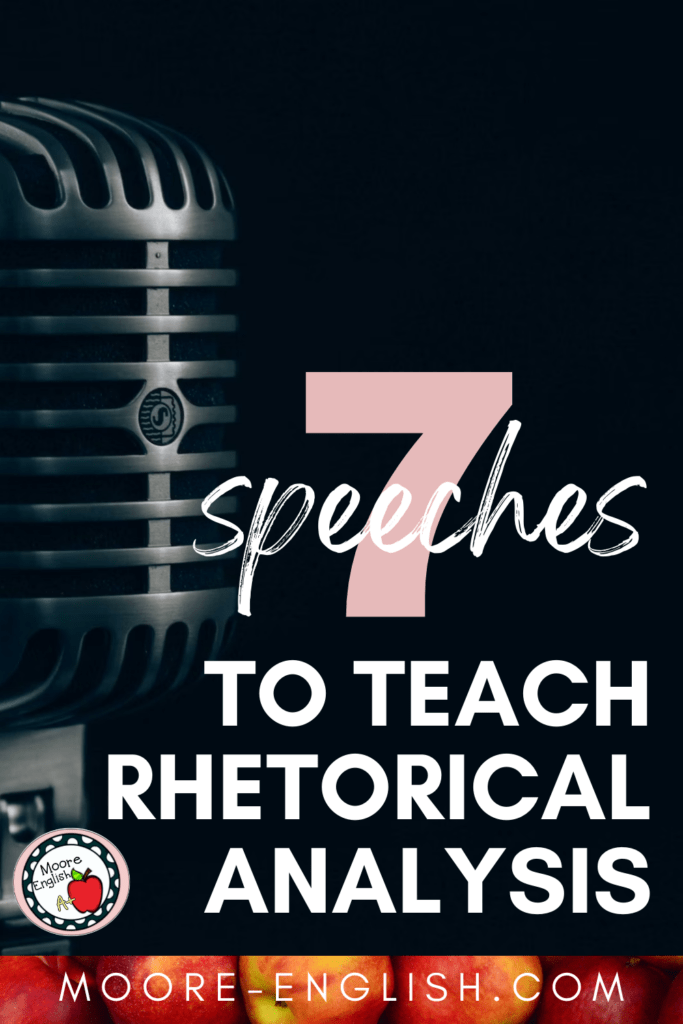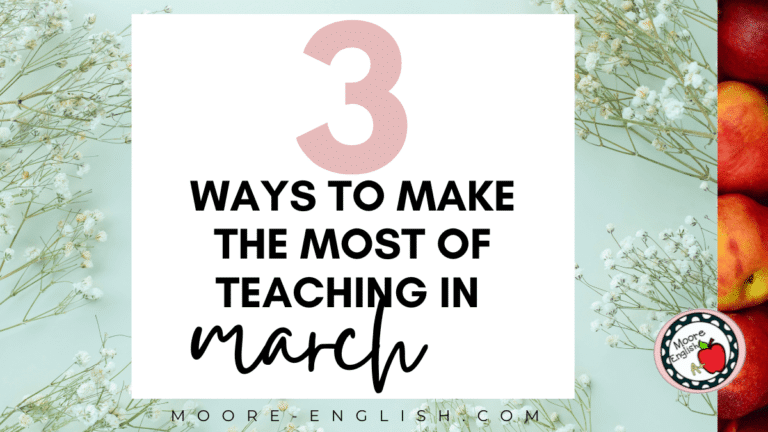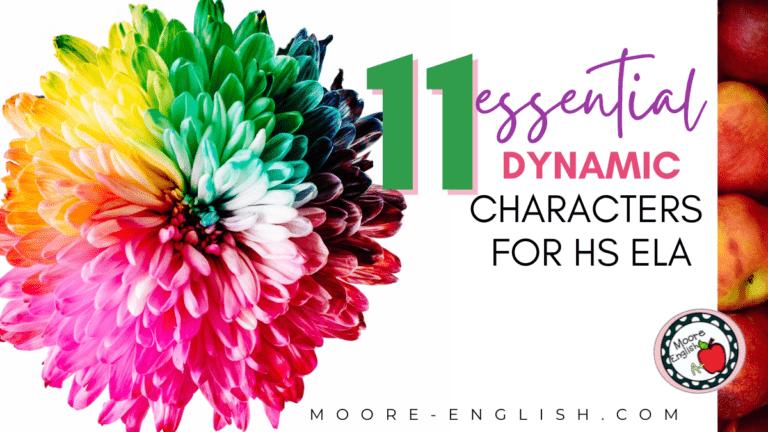Our state assessment always features a famous speech, so it’s essential to prepare students for rhetorical analysis. Beyond the state assessment, rhetorical analysis helps students understand the constant barrage of persuasive media they encounter each day. With the right skills, students can assess sponsored content, commercials, and advertisements with a critical and wary eye.
For this reason, I’ve put together a list of favorite speeches for teaching rhetorical analysis!
This post this post may contain affiliate links. Please read the Terms of Use.
Getting Started with Rhetorical Analysis
Before I take students too far into rhetorical analysis, I like to brush up on rhetorical appeals with this quick card sort.
Then, before we dig into a complex text, we practice identify rhetoric in a less stressful piece. To take some of the stress out of rhetorical analysis, I will often start with a video.
- First, “The Danger of a Single Story” is my favorite TedTalk ever! I even wrote an entire blog post about it, so there is no better place to start with rhetorical analysis!
- “Why city flags may be the worst thing you’ve never noticed” is a less obvious choice. However, this is a fun TedTalk that appeals to a variety of learners. Plus, I’ve designed some creative extension activities so students can practice a variety of skills.
- I also love Antony’s funeral speech from Julius Caesar. Reading this text and listening to an actor’s performance is a great way to consider tone in conjunction with rhetoric. Grab my free resource for Antony’s funeral speech!
- Finally, “Credo” by Neil Gaiman is such a powerful essay! Written in response to a terrorist attack, this text is shorter than the others but packs an incredible punch. Watch Gaiman perform the piece here.
Leveling Up with Rhetorical Analysis
As students become more comfortable with rhetorical analysis, we move into more complex texts. However, by this point, students are comfortable with these 4 steps to pre-read any nonfiction text. With these strategies, students have the tools to tackle any text.
- First, JFK’s Inaugural Address is a classic speech. Oftentimes students are familiar with his challenge to listeners, so this is a good opening. Plus, this speech is short enough that students can work through it in one or two class periods. Students can listen to it here.
- Similarly, students are usually familiar with Patrick Henry’s call to “give me liberty or give me death,” so his Speech to the Virginia Convention is a fitting text for rhetorical analysis. In particular, this is a great text for teaching restatement.
- Finally, students have often heard of Thomas Paine’s Common Sense, so The Crisis is a good complement to Henry’s work. As a bonus, this is a good piece for analyzing aphorism as a rhetorical tool.
More Complex Texts for Rhetorical Analysis
As our study of rhetorical analysis progresses, students become ready for more challenging texts. To help students attack these texts, we may use these rhetoric task cards or this editable SOAPSTone graphic organizer.
- To my mind, “Sinners in the Hands of an Angry God” is a classic speech for rhetorical analysis. No two students ever have the same reaction to this text, so it’s always a memorable lesson!
- Additionally, FDR’s Four Freedoms Speech is a complex piece for rhetorical analysis. One of the challenges of this speech is its historical context. Its length is also another factor. Nevertheless, it’s a speech that continues to resonate with students.
Bonus Recommendations
While these two recommendations are not technically speeches, they still make for great rhetorical analysis.
- First, “Privileged” by Kyle Korver engages students because they love basketball. They don’t expect the speech to lend itself to such powerful rhetorical analysis!
- Second, “Words and Behavior” by Aldous Huxley is an incredibly dense essay. However, Huxley manages to criticize the use of rhetoric while also using rhetoric. By this token, this text pairs nicely with every other text on this list.












